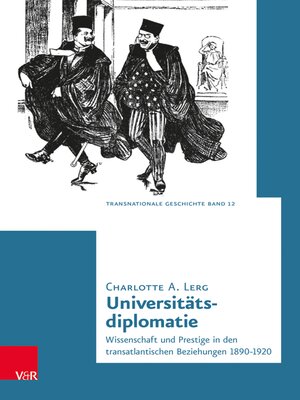Universitätsdiplomatie
ebook ∣ Wissenschaft und Prestige in den transatlantischen Beziehungen 1890–1920 · Transnationale Geschichte.
By Charlotte A. Lerg

Sign up to save your library
With an OverDrive account, you can save your favorite libraries for at-a-glance information about availability. Find out more about OverDrive accounts.
Find this title in Libby, the library reading app by OverDrive.



Search for a digital library with this title
Title found at these libraries:
| Library Name | Distance |
|---|---|
| Loading... |
Prestige and international visibility beyond the confines of the academic world are key reasons for universities to get involved in international relations. Many of the common practices we know today, like honorary degrees, exchange programs or funding special study centres first emerged around the turn to the 20th century, especially in transatlantic relations. While the German and the French governments were vying for political sympathies in the US, newly reformed American research universities were hoping for academic recognition in Europe and social acceptance at home. Thus developed a distinct university-diplomacy, pursued in particular by university presidents, professors and educators as the foreign service was only beginning to professionalize. Even if the First World War deeply affected these networks, especially the links to Germany, they formed the foundation of the structures and strategies that afforded US-universities a crucial role in the cultural diplomacy of the so-called American century.







